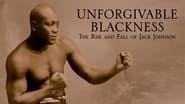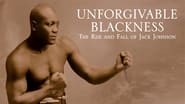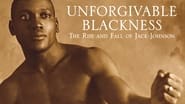Hellen
I like the storyline of this show,it attract me so much
Moustroll
Good movie but grossly overrated
Stevecorp
Don't listen to the negative reviews
FuzzyTagz
If the ambition is to provide two hours of instantly forgettable, popcorn-munching escapism, it succeeds.
MartinHafer
This is an amazingly long and detailed biography about the first black heavyweight boxing champion, Jack Johnson. In an era where blacks were, at best, second-rate citizens, Johnson had a brashness and arrogance that made it even more difficult for white America to accept him. And, incidentally, many black Americans disliked him as well. This was because he slept with prostitutes--many of them. And, many of these women were white--a sin which few seemed willing to forgive. As a result, even though he was the undisputed champ, he was often reviled. Many will be amazed at just how horrid the hatred was--with vile comments by supposedly upright citizens and newspaper accounts that are embarrassingly hateful. What happened next, you'll just need to see for yourself--but much of Johnson's downfall, unfortunately, was his own doing."Unforgivable Blackness" is a perfect or near perfect film. Some might balk at the great length of the film, but is grand style and quality are apparent throughout the movie. Incidentally, if you want to see more about this amazing but flawed man, try watching "The Great White Hope" with James Earl Jones, a slight reworking of the story of Johnson.By the way, it's not a major beef, but this show repeats a very commonly accepted myth. While President Woodrow Wilson was a horrible man (don't even get me started...), the comments he supposedly made after seeing the racist film "Birth of a Nation" were actually never made. The Writer Thomas Dixon apparently made up this quote. Do a little research on the web, you'll see what I mean.Also, although they never mentioned it in the film, it was illegal for a black and white couple to marry in many states in the US at the time and remained so until the early 1960s. Sad.
douglasgreenberg
What a perfect documentary. What a master Ken Burns is. Unforgivable is the story of the indestructible Jack Johnson, the first black heavyweight boxing champion, whose legendary style downed even the toughest white contenders inside the ring, and sent almost every white American into a frenzy of racial contempt for him, outside the ring.Jack Johnson is such a rich subject; it seems we could never tire of him. He was the rags to riches American dream. He was the champ who repulsed an entire generation of whites - refuting their fundamental belief that blacks were by nature inferior beings. He was the pioneer that paved the way for future black athletes, who had formerly been relegated to Negro leagues. And he was the social trailblazer as well, integrating with whites in unprecedented and often dangerous ways. Now Burns has reconstructed his life in and outside the ring through this wonderful collection of photos, interviews, film reels and archival documents. In short, I've seen no other documentary that so pungently depicts the black struggle to be accepted, and indeed, free in America.
blanche-2
Ken Burns has done an amazing documentary on the life of Jack Johnson -but even more amazing is the story he tells of the times in which Johnson lived. There is still racism in this country, for sure - one wants to believe that at least in most parts of the country, it is a little more circumspect than racism was during Johnson's life. This documentary provides a truly astounding look at this country at the beginning of the century, and a lot of it is unattractive. Johnson, called "The Ethiopian," could not go after the heavyweight title because the white fighters swore no black man would ever have it. When he finally did get it, Jim Jefferson, the undefeated champion, who had refused to fight Johnson, was dragged out of retirement 10 years and 100 pounds later to try to reclaim the title. He failed, and commented that in his prime, he could never have beat Johnson.In his belief system, Johnson came up against a contemporary, Booker T. Washington, who believed that, rather than worry about segregation, blacks should build a power, education, and money base first. Johnson preferred to live as if segregation did not exist. He lived in white neighborhoods, moved his mother into one, flaunted his money, and consorted with white women. His quest for individualism cost him dearly. He bucked a system that simply would not stand for it.This is a fascinating piece of our history, one that should not be missed.
James McNally
I saw this film at the 2004 Toronto International Film Festival. It may seem hard to believe, but I've never seen a Ken Burns film. I've always meant to, of course, but watching a multi- part documentary series is something of a commitment. So I jumped at the chance to see an entire film in one sitting. Clocking in at an impressive 218 minutes (and including a short intermission and a lively Q&A session, I was in the theatre for almost 4½ hours), I was hoping that the quantity would be matched by the quality. I was not disappointed.Jack Johnson was a true original. The first black man to hold the heavyweight boxing championship, he was a self-assured man who dressed well, drove fast cars, and kept white women as girlfriends. While not unusual now, this was highly irregular a hundred years ago, at a time when black lynchings were at their peak and the press regularly printed offensive cartoons to go along with its racist rhetoric. In the ring, he was a highly intelligent boxer, favouring a defensive style unknown in his day. He was also incredibly sensitive and articulate, especially for a man with only five years of formal education. But the struggles Johnson faced were almost insurmountable. No white champion would agree to fight a black man. Jim Jeffries preferred to retire undefeated rather than face Johnson, and Johnson had to travel around chasing champ Tommy Burns, hounding him to give him a title shot. When Burns finally agreed to a fight in 1908 (for a purse of $35,000, an unbelievable sum in those days), the contest wasn't even close, with Johnson dancing around, taunting his opponent, and talking to people in the ringside seats. The police stepped in during the fourteenth round to prevent him from knocking out the badly beaten Burns.Johnson held the title from 1908 until 1915, with his most famous bout in 1910, against ex- champ Jeffries, whom he soundly defeated. This led to race riots all over the country, and many people were killed. From the moment he won the championship, it seemed that white society looked for ways to discredit him. The press were relentless, printing hostile editorials and calling for a "Great White Hope" who would return boxing's crown to its rightful place (and race). When a 37-year old Johnson finally lost the championship to Jess Willard, a giant man ten years his junior, it seemed to many that the black race had been taught an important lesson.Johnson's life was troubled, and he continued to face persecution from the press and even law enforcement, who prosecuted him on charges related to his "debauchery" with white women. He eventually served a year in prison. There would not be another black heavyweight champion until Joe Louis, 22 years later.This is a remarkable film for many reasons. First of all, in the little-known story of Jack Johnson, Burns has found a microcosm of the racial situation of the day, and one that has many echoes even now. Muhammad Ali, after seeing James Earl Jones portray Johnson in the Broadway play "The Great White Hope" (later made into a film), declared that Johnson's life story was similar to his own. A black man choosing to live as a free individual on his own terms is something that is still hard for some white people to tolerate.Burns' film is also remarkable for the way in which it uses actual archival film of Johnson's bouts. Using silent film, Burns and his crew have added sound effects such as crowd noise and the sounds of blows connecting, and it gives these scenes the visceral punch they require. Finally, the superb "talking heads" (including the late George Plimpton, James Earl Jones, and the witty Stanley Crouch) and voice talent (Samuel L. Jackson is the voice of Johnson; others include Billy Bob Thornton, Derek Jacobi, Brian Cox, and Alan Rickman) bring the extraordinary story of Jack Johnson vividly to life.As an added bonus, you get to hear James Earl Jones say "balls". Twice.(9/10)






